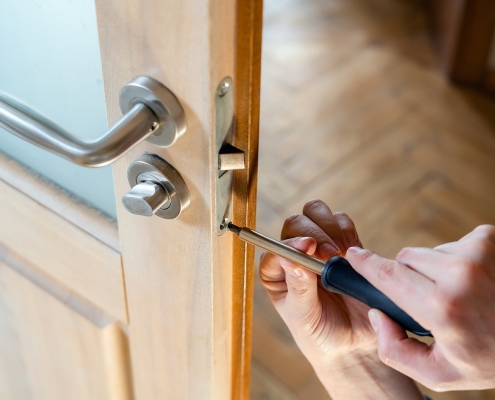
Do-it-yourself home repairs can save you time and money, but they can also be daunting if you're not sure where to start. Whether you're a beginner or a seasoned DIY enthusiast, having a handyman's guide on essential tips can help you tackle common household repairs with confidence. Here are five key tips to keep in mind when taking on DIY home repair projects.
1. Safety First
Before beginning any DIY home repair project, it's essential to prioritize safety. Here are some key safety tips to keep in mind:
Key Safety Tips:
- Always wear appropriate safety gear, such as gloves, goggles, and a mask, to protect yourself from potential hazards.
- Be cautious when using power tools and equipment, and always follow the manufacturer's instructions.
- Ensure proper ventilation when working with chemicals or paints to avoid inhalation of harmful fumes.
- Keep a first aid kit handy in case of minor injuries, and know when to seek professional help for more serious accidents.
2. Use the Right Tools and Materials
Having the right tools and materials is essential for the success of any DIY home repair project. Here are some key tips to help you choose the right tools and materials:
Choosing Tools and Materials:
- Invest in a basic toolkit that includes essential tools such as a hammer, screwdrivers, pliers, a tape measure, and a level.
- Match the tools and materials to the specific requirements of your project to ensure a professional finish.
- Consider renting specialized tools for one-time projects to save money and storage space.
- Research and compare different brands and materials to choose high-quality products that will stand the test of time.
3. Plan and Prepare
Proper planning and preparation can make a significant difference in the outcome of your DIY home repair project. Here are some key steps to help you plan and prepare effectively:
Planning and Preparation:
- Assess the scope of the project and create a detailed plan that outlines the steps involved and the timeline for completion.
- Gather all the necessary tools, materials, and equipment before starting the project to avoid delays and interruptions.
- Clear the work area of any clutter and create a safe and organized space to work in.
- Consider any potential challenges or obstacles that may arise during the project and devise solutions in advance.
4. Learn New Skills
DIY home repairs offer a great opportunity to learn new skills and expand your knowledge. Here are some tips to help you develop your skills and become a more proficient handyman:
Developing Skills:
- Take advantage of online tutorials, workshops, and classes to learn new techniques and best practices for home repairs.
- Practice your skills on small projects before tackling more complex repairs to build confidence and expertise.
- Seek advice and guidance from experienced handymen or professionals in the field to learn from their expertise and insights.
- Stay up-to-date with the latest tools, technologies, and trends in home repair to enhance your skills and stay competitive.
5. Don't Hesitate to Seek Help
While DIY home repairs can be a rewarding experience, there are times when it's best to seek professional help. Here are some situations where you should consider hiring a professional handyman:
When to Seek Help:
- If a project requires specialized skills or equipment that you don't have, such as electrical or plumbing work.
- If a project involves structural changes or repairs that could compromise the safety or integrity of your home.
- If you encounter unexpected challenges or complications during a project that are beyond your expertise or capabilities.
- If you're short on time or resources and need to get a project completed quickly and efficiently.
By following these essential tips and guidelines, you can approach DIY home repairs with confidence and tackle common household projects with ease. Remember to prioritize safety, use the right tools and materials, plan and prepare effectively, continue learning and developing your skills, and don't hesitate to seek help when needed. With a bit of practice and perseverance, you can become a skilled and successful handyman in no time!